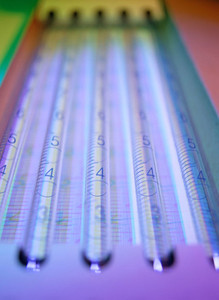In the highly regulated market of the EU clear and rigorous guidelines exist for approval of biosimilars. In the EU biosimilars must ensure the same quality, safety and efficacy, as any other product, along with demonstrating biosimilarity (comparability) with the reference product.
In developing markets, however, the need for biologicals at affordable prices has led to less rigorous regulatory requirements for biologicals targeting the same molecule or disease without a need for demonstration of biosimilarity. These ‘alternative’ biologicals [1] cannot be compared to those approved in the EU, which are subject to rigorous comparability exercises.
In the less regulated Indian market, however, there exist many ‘alternative’ biologicals, despite the fact that no specific guidelines exist in India for their approval.
Biosimilars or ‘alternative’ biologicals in India are discussed by Dr Shashank R Joshi, Consultant Endocrinologist, Lilavati and Bhatia Hospital, Grant Medical College Mumbai, India [2].
Incidence of pure red cell aplasia following a minor change in the packaging process of epoetin alfa (erythropoietin, EPO) made the world sit up and look at biopharmaceutical products with more caution [3]. It also prompted drug regulatory authorities to establish strict guidelines for evaluating biopharmaceuticals and biosimilar products.
Bowing to the stringent criteria required by the EU, India-based Marvel Life Sciences officially notified the Committee for Medicinal Products for Human Use (CHMP) of EMA in December 2007, that it would withdraw its applications for marketing authorisations for their biosimilar human insulins, as they were unable to meet the standards for comparability set by the CHMP [4].
This ‘Marvel insulins episode’ is critical from an Indian perspective as ‘alternative’ biological insulins continue to flood the Indian market, despite the fact that in the EU the EMA has not yet approved a biosimilar insulin. This raises issues for doctors when prescribing these products to patients in India.
Dr Shashank therefore calls for evidence-based validation and close pharmacovigilence of these biosimialrs [or ‘alternative’ biologicals] in India in order to determine their efficacy and whether they have any side effects.
References
1. GaBI Online - Generics and Biosimilars Initiative. Regulatory approach to biosimilar development [www.gabionline.net]. Mol, Belgium: Pro Pharma Communications International; [cited 2011 June 14]. Available from: www.gabionline.net/Biosimilars/Research/Regulatory-approach-to-biosimilar-development
2. Joshi SR. Biosimilar Peptides: Need for Pharmacovigilance. JAPI. 2011;59:S44-7.
3. GaBI Online - Generics and Biosimilars Initiative. Epoetin alfa and pure red cell aplasia [www.gabionline.net]. Mol, Belgium: Pro Pharma Communications International; [cited 2011 June 10]. Available from: www.gabionline.net/Biosimilars/Research/Epoetin-alfa-and-pure-red-cell-aplasia
4. GaBI Online - Generics and Biosimilars Initiative. Rejected biosimilars: the Insulin Human Rapid Marvel case [www.gabionline.net]. Mol, Belgium: Pro Pharma Communications International; [cited 2011 June 10]. Available from: www.gabionline.net/Biosimilars/Research/Rejected-biosimilars-the-Insulin-Human-Rapid-Marvel-case








 0
0











Post your comment